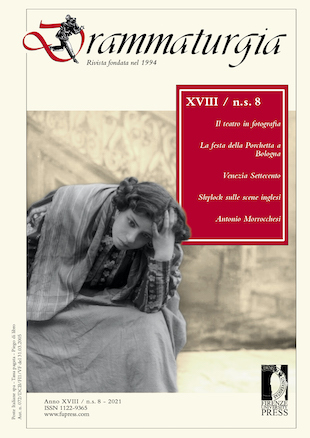Pubblicato 2022-04-05
Parole chiave
- Theatre,
- Iconography,
- Photography,
- Actors,
- Eighteenth Century
Come citare
Abstract
The article analyses theatre photography in the period between the second half of the Nineteenth Century and the early Twentieth Century. In this period, in parallel with the diffusion of the photographic technique, the phenomenon of the great actor establishes throughout Europe, while we are witnessing to the birth of the Stage Directing. The investigation moves from a double perspective: on the one hand, highlighting how the notion of theatricality is at the basis of the photographic device, and on the other, underlining how theatre photography is characterised by a substantial ambiguity which calls into question its testimonial value. The two perspectives of investigation are developed starting from examples taken from the European scene, highlighting how, depending on the context, photography and theatre play a role of mutual modelisation, and focusing on photographic portraits of actors, both private and on stage, through some emblematic cases, such as Tommaso Salvini, Sarah Bernhardt, Eleonora Duse, Henry Irving.


